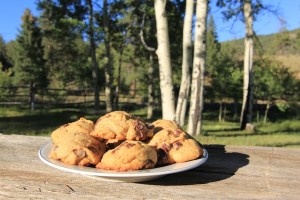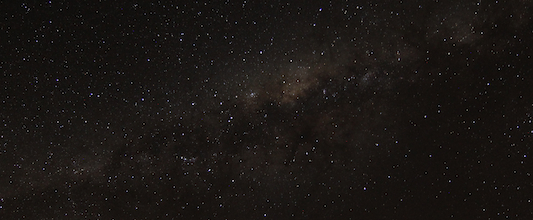Buffalo Chip Cookies
 I baked cookies again tonight. Cut the sugar in half, used a mix of wheat and white flour, dumped in what appeared to be the right number of semi-sweet chocolate chips, doubled the eggs, and—they are awesome! Best I have ever made. Honestly, not all that bad for you either. Taste like mini, sweet chocolate chip bread in cookie form.
I baked cookies again tonight. Cut the sugar in half, used a mix of wheat and white flour, dumped in what appeared to be the right number of semi-sweet chocolate chips, doubled the eggs, and—they are awesome! Best I have ever made. Honestly, not all that bad for you either. Taste like mini, sweet chocolate chip bread in cookie form.
Trevor and I each had a few while putting the finishing touches on our design for a new culvert diversion damn to increase the water level in the lowest of three ponds. The bypass is now over three feet deep, encouraging yahoos to drive through at top speeds, pushing hundreds of gallons of water over the hood, damaging the road, and often tearing off large pieces of their undercarriage.
I placed the final cookies on a dish and then slid it into a large zip lock bag. Trevor asked how long I thought they’d last, given our shared propensity for midnight snacks. I crossed the kitchen, grabbed a marker, and proceeded to write numbers on the bag above each cookie, an inventory count. We then dated and signed the bag, agreeing to the number at 8:06 pm.
Now, if by tomorrow morning the quantity is drastically reduced, we cannot claim there were only a few left. Yes, home made cookies are a very serious affair at Buffalo Peak Ranch.
1 cup wheat flour
1 cup white flour
1/2 cup brown sugar
1/2 tsp salt
1/2 tsp baking soda
1/2 cup chopped nuts (optional)
1/2 to 3/4 cup chocolate chips (mandatory)
(mix dry ingredients)
168 grams (1 1/2 sticks) butter (warm over stove or nuke in microwave oven)
3 eggs
3/4 tsp vanilla extract
Mix the liquids in a glass with fork. Mix the sugar into the eggs and butter.
Mix the dry ingredients in mixing bowl.
Then pour the liquid into the dry bowl, and mix, mix, mix. If it feels too dry (depends on the type of flour, size of eggs, and elevation) you can add a touch of oil until it is the consistency you desire.
Oil a cookie sheet. Place spoonful smudges of the gooey mess in a pleasing geometric pattern. Bake at 375-400F for 8 to 10 minutes, taking into account altitude, humidity, barometric pressure, and of course, the alignment of all the dark matter between here and Alpha Centauri.









